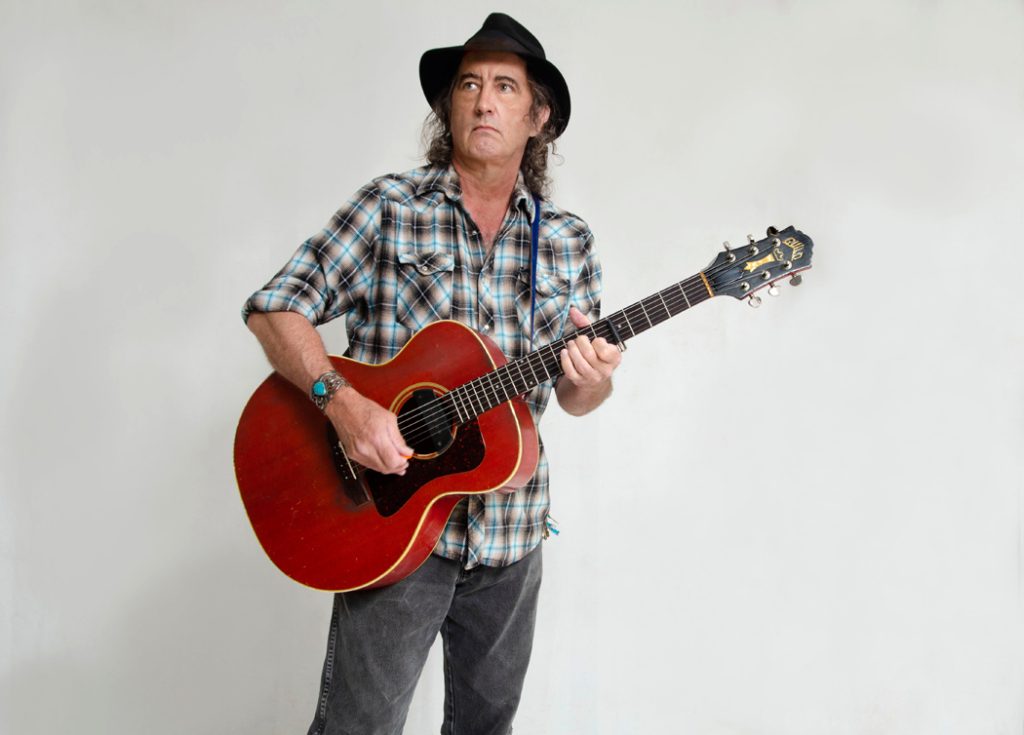
More than a dozen years have passed since I last spoke to the great Texas singer-songwriter James McMurtry. Back then, McMurtry wanted me to spread the word about President Obama’s Pre-Existing Condition Insurance Plan (PCIP), which allowed him to receive health-care benefits that he had previously been without. He noted that most musicians do not have access to health care because of the nature of the job, and he wanted other artists and workers to know about the benefits.
The 61-year-old performer happily reports he still has insurance and is healthy. McMurtry is a laconic speaker. He doesn’t say much and leaves spaces between the words as if he is seriously thinking about what he is saying. But when he gushes, as he did about the PCIP program, one understands how important this was for him as part of the musical community.
“The industry has changed radically since the beginning of my career,” McMurtry noted. “I was originally given a production budget of a quarter of a million dollars apiece for my first three albums by a major label.” His debut album Too Long in the Wasteland came out in 1989 to rave reviews but disappointing sales. It only reached number 125 on the Billboard charts. His next two records fared no better. The Texan noted that the record label charges the production costs to the artist, and that they were never going to recoup their costs.
McMurtry has been more successful recording for independent labels. He works with smaller budgets and understands the process much better now. His latest release, The Horses and the Hounds, is on New West Records, which also represents artists such as Lucinda Williams, Steve Earle, and Rodney Crowell. “It used to be one toured to promote the record, now one makes a record so one can tour,” the singer-songwriter quipped. “Artists never seemed to make money off their records, and with the digitization and streaming of songs, they still do not. Musicians still have to tour to earn a decent income,” he said. McMurtry returns to the Wildwood Smokehouse & Saloon in Iowa City for the second time in a year on Wednesday, June 14.
The Horses and the Hounds has garnered much praise, including a score of 81 out of 100 on Metacritic, which indicates the record has earned “universal acclaim” from the press. It’s McMurtry’s first studio album in seven years. The single “Canola Fields” was nominated for the Americana Music Association’s Song of the Year award. This and the other nine tracks on the disc offer portraits of different people at various stages of their lives looking back at how they ended up where they are.
McMurtry’s songwriting has often used this storytelling technique of changing perspectives from youth to maturity. It allows him to show the implications of small decisions and their connections to the life one lives in a larger society. Often his characters are the victims of circumstances beyond their control and unaware of the choices they have made. They are older but not necessarily wiser.
“Wiser than who?” McMurtry joked. He claims to be no more knowledgeable about life than he was before. His songs often have topical references about the economy, the media, the climate, and such, but usually not in a direct fashion. He’s more interested in telling a story than making a point. He lets his listeners draw their own conclusions. The protagonists of his songs may realize their predicaments but do not often see beyond the box they are in. And not everyone is unhappy. Some have found love or a certain amount of contentment.
“I don’t plan out what I am going to write,” McMurtry said. He noted that different parts of the same song may be inspired by unrelated sources. A line will come to him and he will write it down and save it. Later he may find himself looking through his notes and thinking the lyric would fit well in another piece. He says the words come first, then he figures out what the music should sound like.
McMurtry has been covered by other notable Lone Star artists, including Robert Earl Keen, Sarah Jarosz, and Ray Wylie Hubbard. And McMurtry’s concern with language and storytelling may be genetic. His father, Larry McMurtry, was a noted American novelist and screenwriter whose works include Hud, The Last Picture Show, and Lonesome Dove. James also has a son, Curtis McMurtry, who is a well-respected musician.
“It was my father’s Johnny Cash records that made me want to be a musician,” McMurtry said. “There was just something cool about the way he sang and presented himself.” When McMurtry was older he discovered Kris Kristofferson and what it meant to be a songwriter. He still admires these two artists and noted their influence on many other musicians, too.
McMurtry looks forward to returning to Iowa City, a place he has performed many times during his professional career. He sadly noted the demise of the Mill and the state of the Green Room at Gabe’s. He happily commented on the Wildwood Saloon as a venue, and more importantly, that Iowa City audiences come out to see him.
